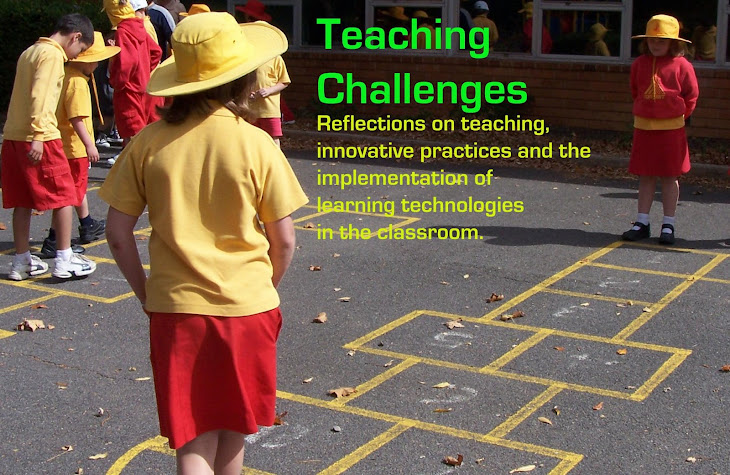David Hornsby was challenging the notion of teaching literacy in the structured literacy block where reading and writing don't intersect. He reminsced about the good old days when you could walk into a classroom and be absorbed into the theme that students were reading and writing about, when hands on learning, play and imagination were all part of the experience of becoming literate.

He began by reading us a couple of great books that draw you in and remind you the value of exploring quality literature with students. Both books were by Colin Thompson and present different perspectives of life and death. If you're looking for a book that's great for any age, check out The Short and Incredibly Happy Life of Riley by Colin Thompson and Amy Lissiat. If you find it, you're in luck, as everywhere I've looked is sold out. (Might be time to buy online!) The other book was Dust and was darker and more solemn - perhaps better for an older audience.
David Hornsby then explored Springboards into Literacy through three different avenues:
- Project Based Learning
- Science
- Art-full Pedagogies
David Hornsby discussed the Project Based Learning program at Croydon West Primary School, where students have enjoyed improved reading results as a result of their commitment to this program.
Here, students in the early years begin each day with 100 minutes of "Explorations" where they develop their oral language and social skills through project based learning and are invoved in activities such as construction, cooking, games, beads, computers, dress-ups, science experiments and interaction with nature. Students then move into share time where they have the opportunity to present and discuss the things they've learnt. After the recess break students start a session of free writing, during which most students write about what they were doing in the morning.
As James Britton said, "Reading and writing float on a sea of talk." For a detailed review of research on Project Based Learning click here.
Science
Not being particularly scientific-minded myself, I found this session particularly valuable. David Hornsby began by posing the question "How do you teach science - not at all; through reading scientific texts; or through experimentation?" I'm ashamed to say that I don't give my students enough time to understand science concepts through hands on exploration and discussion. I try whenever possible, but I feel that sometimes our science-focused units of work don't really lend themselves to this sort of exploration.
David Hornsby pointed out that in order to really comprehend a scientific text we need to have first explored the concepts and the language to describe those concepts before reading the text. For the purposes of the presentation, he used videos of a teacher conducting science experiments. He invited us to make our hypotheses about what would happen and then showed us the video. We then had a chance to discuss and reason about the result. In a classroom this could lead into students writing an explanation and drawing a diagram.
Science can be used to engage students in reading and writing for real purposes. Through their experiences they can develop a greater interest and understanding of how the world works.
Art-full Pedagogies
David Hornsby finished up by discussing how the Arts can be used as springboard into reading, rather than a final product or response to reading. He talked about how art can be used to engage students in the topic and discussion prior to reading the book. I really like this idea and am trying to find ways to implement it with my teaching. David shared with us how students at one school considered their own perspectives on 'grannies' before reading the book Our Granny by Margaret Wild. Students created playdough grannies and did roleplay interviews as grannies. This developed the concepts and language the students needed in order to make connections with the text when they read it. What a great way of exploring critical literacy and the images and stereotypes we develop!
All in all it was a great day and left me with much to work on. Check out Friday Fun at the end of this week to see how I apply the Art-full Pedagogies with our Readers' Theatre lesson.
I'd love to hear what other people thought of this Professional Development workshop. If you were there as well, please leave your comment below.








Hi Penny, I am an Assistant Principal in Sydney and I have been following your blog for 2 months now with every update delivered to my innbox! I just wanted to let you know what an inspiration you are to me and how encouraging it is to connect with another teacher who is as passionate about teaching as I am, who is trying hard to embrace technology as I am and who is as excited about teaching our future leaders as I am. Keep up the amazing blog, I'm sure there are hundreds of people out there just like me who value your input so much. If you ever need a job, please let me know!!!! :)
ReplyDeleteHi Kate,
ReplyDeleteThanks for leaving your comment. It's really encouraging to hear about how the blog is inspiring and encouraging others. Your kind words are motivating and also help my husband to realise the value of the hours I spend at my computer! If I move to Sydney, I'll be sure to contact you.